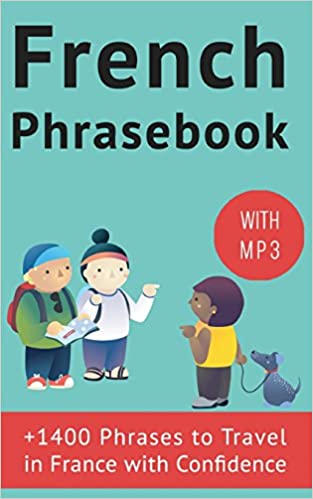Christmas in France is first and foremost a family holiday, with people traveling from all over the country to reunite with their loved ones for the Réveillon.
Festivities start in early December and last until early January. Furthermost, each region has its unique traditions. If you are lucky enough to spend Christmas in France, here is everything you need to know to enjoy the holidays.

Before Christmas
The weeks that lead to Christmas are almost as important as Christmas itself. Not only is everybody decorating in preparation of the big day, but there are also unique celebrations taking place all over the country. To make the most of your Christmas in France, try to get there early in t
he season and don’t hesitate to travel around the country to discover each region’s unique traditions.
Listen to this Podcast episode: French Regional Christmas Traditions (Podcast #36)
Insider tips
Paris never deserves its nickname of the City of Light better than at Christmas time when many of the main sites putting out lavish Christmas lights displays. The Champs-Elysees are particularly impressive. Children and kids at heart will also love the windows of the Grands Magasins like le Printemps and Galeries Lafayettes.
A day trip to Disneyland Paris may also be in order to experience the magic of Christmas. However, for a uniquely French Christmas experience, head to the Alsace and Lorraine region in the Northeast of France, which turns into a real Winter Wonderland at Christmas time. The area has a strong Germanic influence and has many unique festivals, particularly around December 6th (St Nicolas).
You will also find some of the most beautiful Christmas Markets in Europe in Strasbourg and Colmar.
Advent
For Christians around the world, the weeks preceding Christmas are known as the Advent. France is no exception. The four weeks leading to Christmas days are marked by celebrations.
It is originally a Catholic holiday, but l’Avent has become a time of preparation, both religious and secular, for everyone regardless of their religious orientation. The Advent starts of the fourth Sunday preceding Christmas, or on December 1st for secular festivities.
Many children receive a Calendrier de l’Avent (Advent calendar) which helps them to wait patiently until Christmas Day as they open a little window every day which uncovers a small present or candy. Another traditional Advent decoration is the Couronne de l’Avent (Advent crown), a wreath on which are placed four candles: on each Advent Sunday, the family lights a new one.
St Nicholas
St Nicolas is celebrated on December 6th mostly in the Northeastern part of France. According to the legend, St Nicolas would have saved and resurrected three children killed by a cruel butcher who intended to eat them. On the night of December 5th, little children put their shoes by their doorstep along with a carrot for St Nicholas' donkey. An orange and gingerbread reward those who have behaved well.
However, St Nicholas is accompanied by the Père Fouettard, a somber character who whips naughty children and puts coal in their shoes instead of delicious gifts.
If you visit the Alsace and Lorraine regions that time of year, you will see many festivities linked to this tradition, including St Nicolas visiting the children of surrounding towns.
A great way to enjoy the holiday season in France is to attend the Festival of Lights in Lyon. Since 1852, the city of Lyon, in the east of France, organizes an impressive Festival of Lights on December 8th (the Feast of the Immaculate Conception in the Catholic tradition) which marks the beginning of the Christmas season.
Around the city, inhabitants and visitors can admire impressive displays which illuminate the streets and heritage sites.
Insider tip
The Festival of Lights in Lyon is the most popular time to visit the city among French and international tourists. Book your transportation and accommodations early if you want to experience this unique holiday!
Christmas Markets
A visit to one of the many Christmas markets is the best way to do some last minute Christmas shopping and celebrate the holiday season with a delicious treat.
They are inherited from the German tradition and started in the northeast of France. However, nowadays, you will encounter Marchés de Noël in most cities and towns around the country. Nevertheless, the most famous and beautiful ones are found in Alsace and Lorraine – notably in Strasbourg.
Local artisans sell their goods in small stalls made of wood, and you will also find an abundance of traditional food offerings, like gingerbread, mulled wine, onion soup, etc. Many also have seasonal activities for the entire family, like an ice rink, picture with Santa opportunities, etc. They usually open on December 1st and close on Christmas Day.
Letters to Santa
For many children, la Lettre au Père Noël is the first letter they will send. It is a special time to share with Santa what their hopes and dreams are and give the jolly fellow some hints on what they want to see under the tree on Christmas Day.
However, since 1962, all French children who send a letter to Santa will also receive a response to their message, courtesy of the postal services. If you have children or would like to have a unique souvenir of your Christmas in France, don’t hesitate to join in the fun.
Decorating for Christmas
Decking the houses and towns for Christmas is a huge part of preparing for the holiday. Although some cities and stores – like the famed Grands Magasins in Paris – go all out when it comes to exterior decorations, most French households keep outside décor at a significantly more subdued level than their North American counterparts.
Going window shopping is a great way to enjoy Christmas in France but you won’t notice as many light displays outside of the cities. Christmas decorations in France mostly focus on the inside of the house, with two key elements: a Nativity scene (la Crèche) and the Christmas Tree (le Sapin de Noël).
See also: French Christmas Playlist (Listen for free)
La Crèche
Nativity scenes which depict the birth of Jesus Christ are a popular decoration in churches and private homes in many European countries. They often include the Virgin Mary, Joseph, baby Jesus, and the three Wise Kings. In the South of France, this simple scene goes a step further.
The Nativity scenes you will find in many Southern homes include other characters called "santons” who represent inhabitants of a traditional Provencal village of the nineteenth century – which is when this type of décor became popular – including some humorous ones.Bringing back a little santon from your trip would be a great and easily transportable souvenir of your Christmas in France.
Listen to this Podcast: How the French Celebrate Christmas (Episode #37)
Le Sapin
The Christmas Tree is often the centerpiece of the Christmas décor. It is decorated using sparkling and colorful boules de Noël (Christmas baubles), guirlandes (garlands) and lumières de Noël (Christmas lights). On top of the tree, you will usually find an oversized star which symbolizes the star rising the night Jesus was born.
Christmas Eve
In France, the most important Christmas celebrations take place on Christmas Eve (la veillée de Noël on December 24th) and not on Christmas Day (le jour de Noël, December 25th.) Most families get together for the Réveillon on the evening of December 24th, while December 25th is often low-key.
See also: 54 Useful French Vocabulary and Expressions for the Holiday Season
Insider tip
If you want to enjoy Christmas in France, do as the French do by attending the Christmas Mass and enjoying a delicious meal with friends and family afterwards - some restaurants offer a special menu upon reservation - but don’t plan on doing much on December 25th since it is a holiday and stores, museums, etc. will be closed.
If you plan on going somewhere, double check with the venue. Some of Paris’ private museums are open on Christmas Day: maybe it is the perfect opportunity to explore some of the lesser known collections like Mundolingua or the Jacquemart-Andre Museum.
Midnight Mass
Even if they are not religious, many people choose to attend la Messe de Minuit (Midnight Mass), which usually takes place between 6 pm and 10 pm on Christmas Eve.
Some masses include live Nativity Scenes (Crèches Vivantes) with actors who range from professionals and live animals to local children and are animated with traditional religious songs.
Christmas Dinner
Many families get together after Midnight Mass, which leads to the traditional to start late and last well into the night. The food eaten during the Christmas Feast varies widely depending on the region as well as the family traditions and taste.
Some popular dishes include oysters (huîtres), snails (escargots), duck liver (fois gras), smoked salmon (saumon fume), etc. Turkey stuffed with chestnuts (dinde aux marrons) is the traditional main dish, but many families prefer other recipes, like salmon or venison.
For dessert, most French families celebrate with the famous Bûche de Noël (Yule cake), a rolled sponge cake stuffed with cream and shaped like a log, but some French regions have local specialties.
In Provence, for example, you may be served Les Treize Desserts (Thirteen desserts), an assortment of thirteen types of dried fruits and local specialties representing the Christ and the Twelve Apostles. Meanwhile, in Alsace, you could be offered gingerbread or Christolles, which are cakes shaped in traditional figures like a cross, stars, Christmas trees and so on. The drink of choice is champagne.
See also: 10 French Recipes to Make this Christmas
Presents
In France like in many other countries, le Père Noël (Santa) leaves presents (les cadeaux) under the Christmas Tree on Christmas Eve. Most French children open their presents on Christmas Eve rather than wait until Christmas morning.
See also: Holiday Gift Ideas for your French-Obsessed Friends
After Christmas
In France, the Christmas season is not over after December 25th: The festivities last well into the New Year. You can still enjoy Christmas in France even if you arrive in early January.
On January 6th, the country celebrates the arrival of the Three Wise Kings during the Epiphany by eating a special cake: la Galette des Rois, in which is hidden a little figurine: la fève. Whoever gets it is crowned king (or queen) for the day. Many households don’t take down their Christmas decorations until then.
SIGN UP BELOW...
AND GET INSTANT ACCESS TO THE FREEBIES

More like this
Want to read more about holidays in France? For more Christmas-related articles, check out the following:
- How to Greet Merry Christmas and Happy New Year in French
- Travel Phrases to Learn Before Heading to France
- 5 Popular French Christmas Carols
- Q&A: Christmas in France
What is your favorite French Christmas tradition? Share it with us in the comments!
